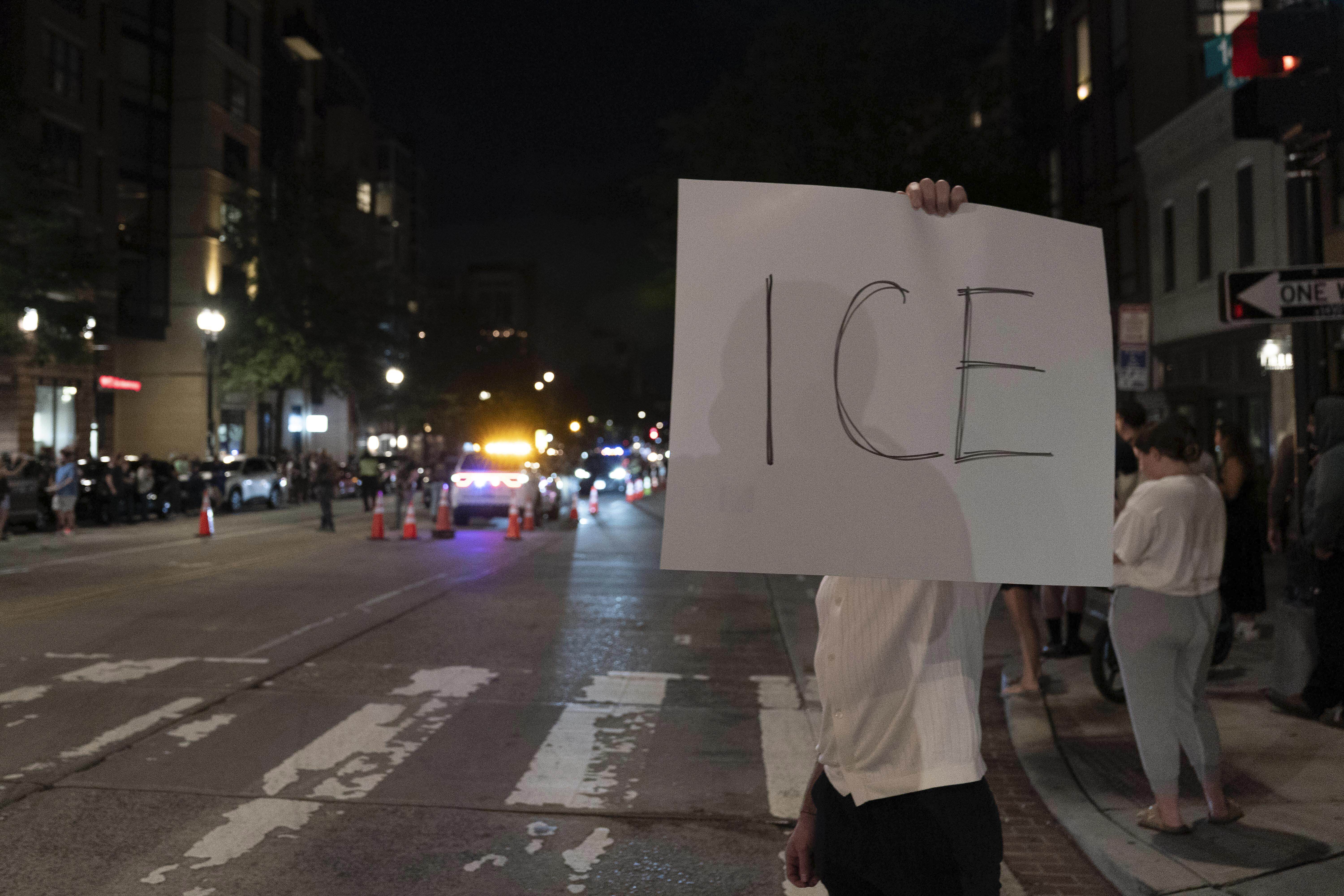Residents in Washington, D.C., took to the streets last night to protest the recent deployment of additional police forces under President Donald Trump's federal initiative. Demonstrators in several neighborhoods expressed their disdain for law enforcement as officers established vehicle checkpoints along busy streets.
In one instance, protesters shouted at law enforcement officials while setting up a checkpoint, while others urged drivers to divert away from upcoming checkpoints. The increased presence of federal officers has been noticeable in various areas of the city since the president announced his controversial plan.
Late Wednesday, officials said that 45 arrests were made, and three illegal weapons were taken. There were 1,650 participants in last night's operations.
And on Thursday, the presence of federal law enforcement—such as Park Police, FBI, and DEA agents—grew on D.C. streets.
The administration has stated that enhanced enforcement will operate 24/7, with a significant focus on nighttime activities. While officials assert that this increased presence helps fill gaps left by the understaffed D.C. police department, many residents have voiced concerns that it undermines their sense of safety.
D.C. Mayor Muriel Bowser has indicated her willingness to accept the additional support, emphasizing the ongoing challenges faced by local law enforcement due to staff shortages.
RELATED STORY | Trump's DC police maneuver contradicted by crime statistics
As protests continue, there is growing apprehension about how the situation will evolve over the weekend. Observers are particularly interested in how the increased enforcement might affect public gatherings on busier nights.
President Trump has also hinted at the possibility of extending the federal takeover of the D.C. Metropolitan Police beyond the initial 30-day period. Such an extension would require Congressional approval, though the president suggested he might declare a national emergency to maintain federal control without legislative intervention.
Legal experts have warned that this approach could lead to significant legal challenges, particularly since local police oversight is subject to that statutory 30-day limit. In contrast, federal law enforcement fall entirely under the president's jurisdiction and can operate indefinitely as he sees fit.
RELATED STORY | Trump says he'll escalate National Guard force in DC, continue crime crackdown
In addition to these enforcement measures, Trump plans to request extra funding from Congress to support his anti-crime initiatives. Sen. Lindsey Graham, a key ally, has pledged to assist in advancing the security funding bill, which he is expected to work on alongside Alabama Sen. Katie Britt. However, any proposed legislation will require bipartisan support to overcome the anticipated filibuster.
With Congress currently on recess and scheduled to return only after Labor Day, immediate legislative action appears unlikely. Despite local leaders and statistics indicating that violent crime is at a 30-year low in the district, the president continues to prioritize what he perceives as urgent security concerns in Washington, D.C.
This story was initially reported by a journalist and has been converted to this platform with the assistance of AI. Our editorial team verifies all reporting on all platforms for fairness and accuracy.




